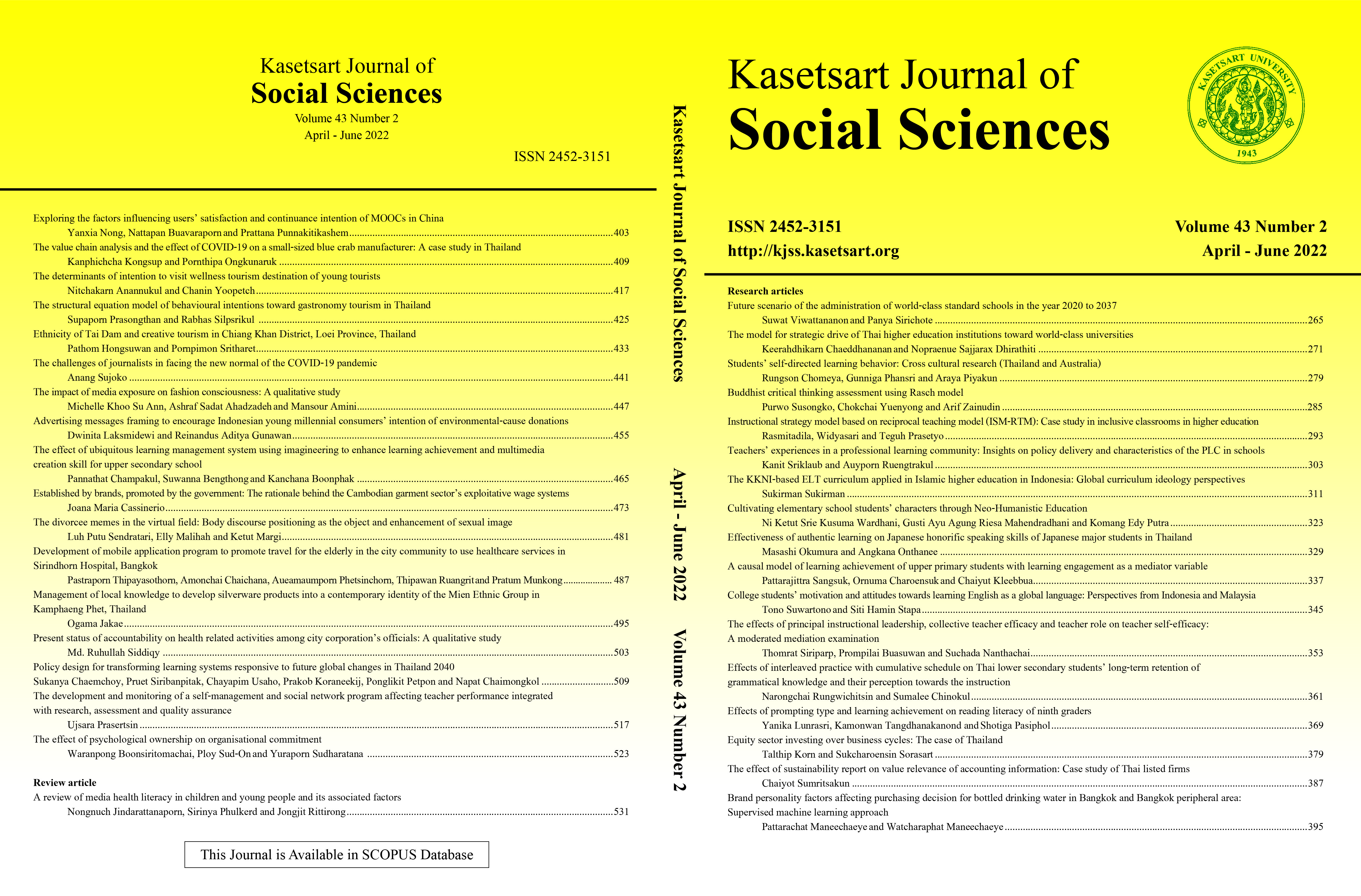Established by brands, promoted by the government: The rationale behind the Cambodian garment sector’s exploitative wage systems
คำสำคัญ:
Cambodia, garment, human rights, labor rights, wageบทคัดย่อ
As protest movements in recent years have seen Cambodia’s garment, footwear and textile (GFT) workers emerge as frontline defenders of their rights, the Cambodian government has made pro-worker concessions to some extent — from an annually increasing monthly minimum wage to mandatory back payments of workers’ bonuses. Despite these improvements, workers continue to suffer under multifaceted exploitation from a variety of stakeholders. Conversations with 27 garment workers as well as 24 other stakeholders — including trade unions, human rights lawyers and employers — revealed ongoing abuses of workers’ rights, a result of capitalist ideologies deeply ingrained in trade philosophies of countries and corporations alike. Specific attention was brought to the GFT sector’s minimum wage, which: (1) fails to provide adequate financial security despite its annual increase; (2) facilitates price-cutting practices of brands; and (3) serves as distraction from the productivity-based pay and its ability to improve workers’ monthly income and uncover unfair and unethical brand practices. The main findings showed that workers’ incomes were heavily influenced by common practices of financial exploitation by brands. As a result, unfair piece prices paid to factories create financial bottlenecks, which in turn translates into workers rarely having the opportunity to earn more than the minimum wage. This paper provides a recollection of the GFT sector’s struggles and clarifies the disconnect between workers and other key stakeholders.
ดาวน์โหลด
เผยแพร่แล้ว
รูปแบบการอ้างอิง
ฉบับ
ประเภทบทความ
สัญญาอนุญาต

อนุญาตภายใต้เงื่อนไข Creative Commons Attribution-NonCommercial-NoDerivatives 4.0 International License.
This is an open access article under the CC BY-NC-ND license http://creativecommons.org/licenses/by-nc-nd/4.0/










